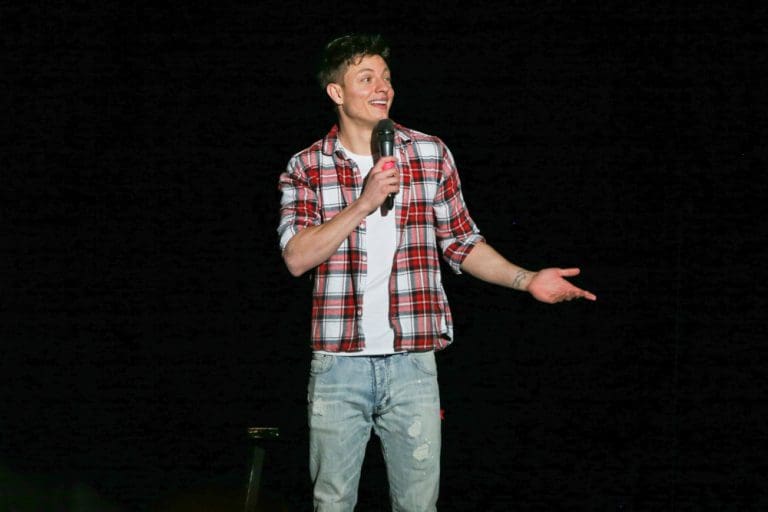Matt Rife, a stand-up comedian who rose to fame on TikTok, has recently been at the center of controversy following an offensive joke made during his Netflix special. The joke in question, which made light of domestic violence, led to significant backlash from both fans and the public. Rife’s initial joke suggested that domestic violence could be a way to ensure the rest of his show went “smooth sailing,” and it was followed by a tasteless comment about a waitress with a black eye, which further fueled the outrage.
In response to the criticism, Rife has not stepped back but rather doubled down on his approach in his latest show at the Hollywood Bowl. During the performance, he addressed the controversy with a mix of defiance and humor, suggesting that the potential of being “canceled” was not a real punishment and even joked about the situation in the context of other serious topics.
Rife’s response to the backlash has been marked by a continued provocative stance. In a notable moment, he interacted with an audience member about their criminal past, only to follow up with a statement that domestic violence is never funny, highlighting a complex approach to dealing with the fallout from his joke. This approach has not only sustained the debate around his comedy but also raised questions about the boundaries of humor and the consequences of crossing them.
This controversy has also seen Rife gaining followers despite—or perhaps because of—the backlash, indicating a polarized response among the audience. His handling of the situation through social media and public appearances continues to be a topic of discussion, with some viewing his responses as insufficient or exacerbating the issue.
As Rife continues to navigate the aftermath of his controversial joke, the conversation around the limits of comedy, particularly concerning sensitive topics like domestic violence, remains a critical point of discussion. His case serves as a reminder of the broader implications of humor and the varied responses it can evoke within the public discourse.




